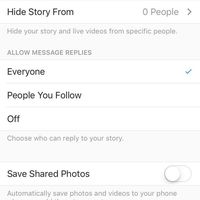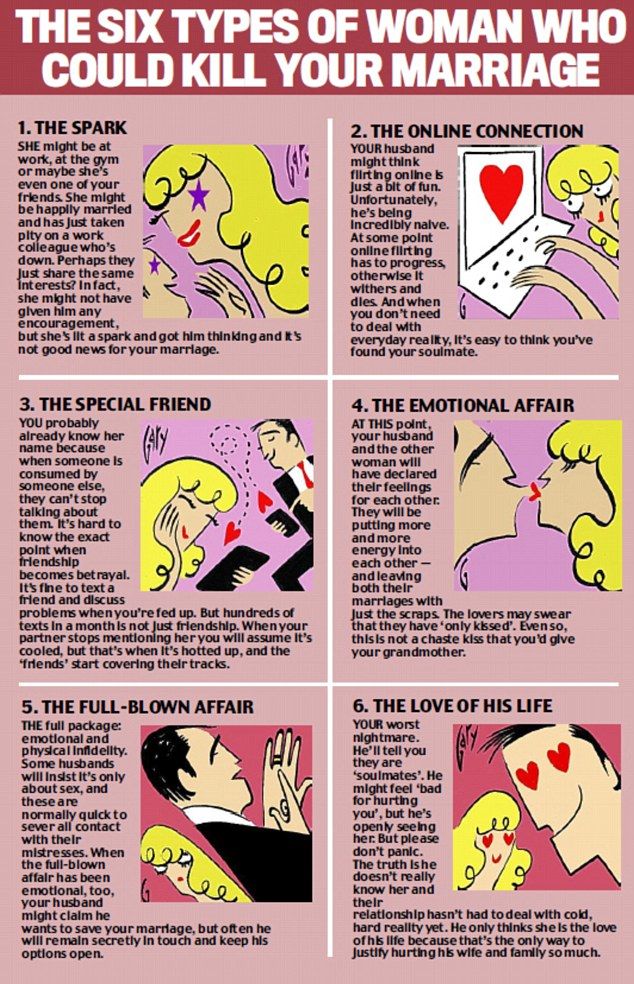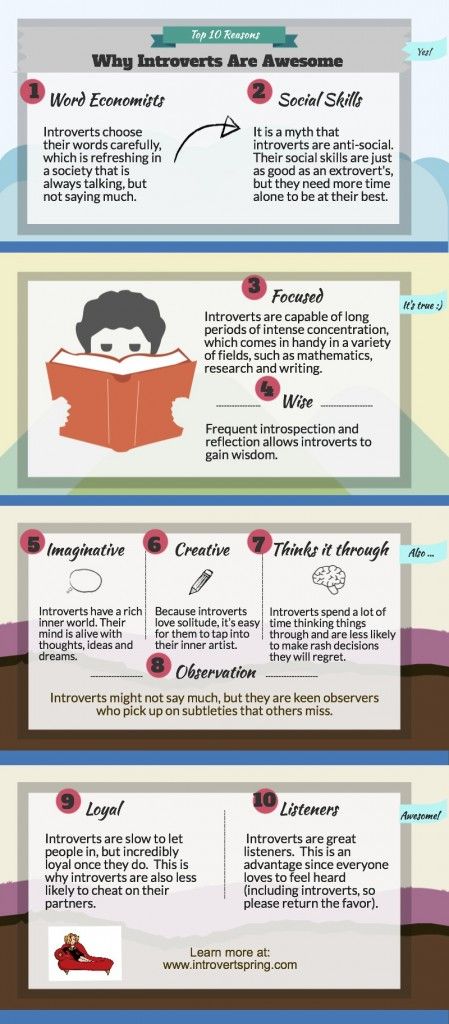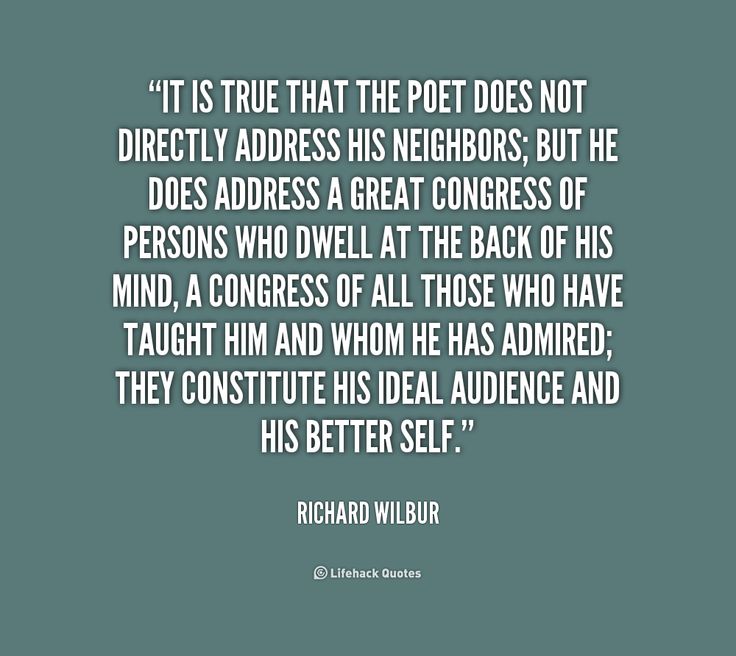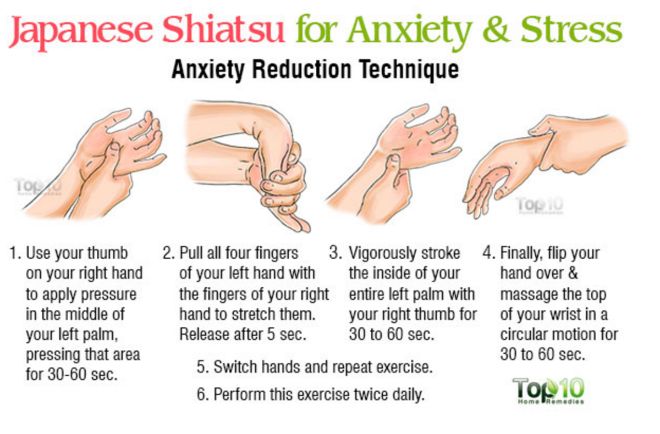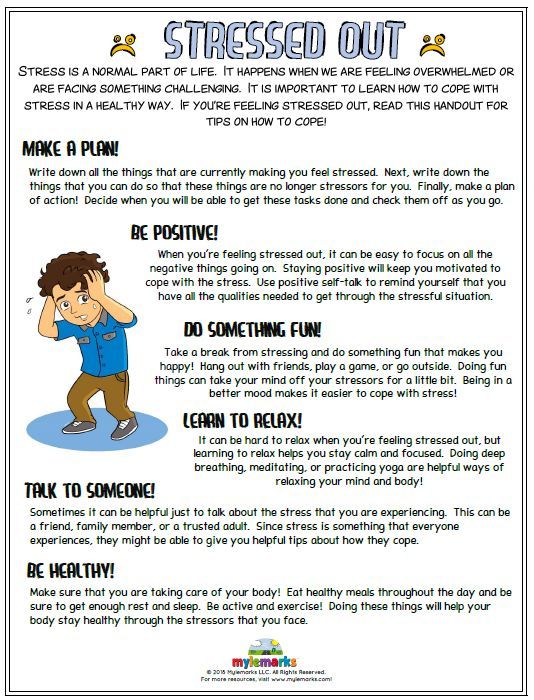Hide from people
10 Ways We Hide from the World & Why We Need to Be Seen
“Don’t hide yourself. Stand up, keep your head high, and show them what you got!” ~Joe Mari Fadrigalan
Sometime in high school I started to disappear. If I think back to the source of my disappearance, it was probably in sixth grade, the year all of my girlfriends ostracized me from sleepovers, parties, and general friendliness.
I was resilient, made some new friends, and forgave the old, but I kind of stopped trusting people. And when you don’t trust people, you can’t be yourself around them. So I decided to disappear.
I remember becoming ghost-like. I remember it being a choice. A conscious choice.
I decided to slouch in my desk and cover my eyes. I decided to silence my voice when an opinion was provoked. I decided to avoid eye contact. I decided to skip parties, stop making efforts with people who made no efforts with me, and hold my breath until graduation day.
And this is what I learned: people let you disappear.
I don’t think I expected to be saved, but no one crawled into my hole, grabbed my hand, and pulled me out.
If you want to disappear, you will. You’ll meet someone five or six times and they will never seem to remember meeting you. You’ll walk down streets and people will bump right into you. You’ll be looked through and talked over.
The world does not carve out a space for the voiceless. They do not roll out a red carpet and invite the invisible to parade through.
This is the great lesson of life: you get what you ask for. If you want to disappear, you got it. If you want to be seen and heard, you can have that too.
Disappearing is much easier, I have to say. It doesn’t take much energy to shut up and fade away. What’s much more challenging is acknowledging to yourself that you’re worthy of being here and facing the pain that’s required of being seen.
Here are some of the ways we hide:
1. We don’t give our opinion because it’s different from what other people are saying.
2. We avoid eye contact or look away once initial eye contact is made.
3. We speak very softly and timidly.
4. We slouch and hunch over in an effort to shrink ourselves down.
5. We wait for other people to initiate.
6. In conversation we don’t offer up anything about our lives, our feelings, our interests, our thoughts.
7. We decline invitations to parties, to dinners, to coffee, to anything new.
8. We tell ourselves stories about people so we don’t have to like them and, inevitably, let them in.
9. We don’t tell the truth to others.
10. We don’t tell the truth to ourselves.
I was waiting to live. Waiting to feel okay in my skin. Waiting to find people I could trust and open up. Waiting to live the life I wanted for myself.
This was a dangerous lesson in my life. It taught me that it was okay to hide, that it was okay to shrink myself down to a barely audible whisper. Hiding became a habitual coping mechanism.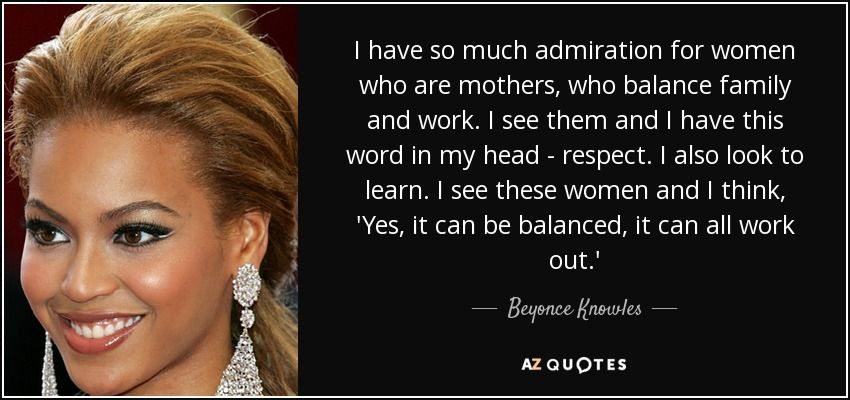
When I moved to LA in my late twenties, I realized that no one knew me. I had some amazing people in my life who lived all over the country, but this was my new home—and no one knew me.
Around this time I began to heal myself through mentorship and breathwork.
I learned to value myself, to recognize my inherent worth, and I became more open. I took risks: I maintained eye contact with strangers, I smiled, I gave out information about myself without it being requested of me, I asked people out for coffee, I had presence, I was vibrating at a higher frequency.
And guess what started to happen? People were seeing me. At cafes people looked me in the eye, and we made small talk, sometimes real talk. Neighbors learned my name. People remembered me.
We all need to be seen. It’s part of what makes us human. When we don’t allow ourselves to be seen, we diminish our importance in this world. We undervalue ourselves. We hold ourselves back from greatness. We stifle our contributions.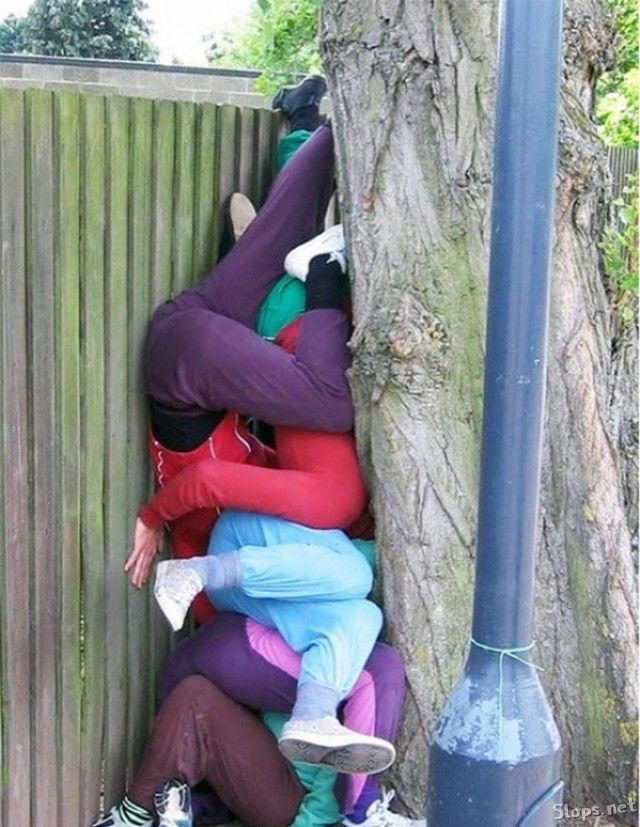 And it just plain doesn’t feel good.
And it just plain doesn’t feel good.
A life of joy is one in which we feel comfortable showing who we really are to the world. It means accepting the fact that we’re going to stumble over our words sometimes, be misunderstood sometimes, and even be disliked sometimes.
But even in those moments we will still love ourselves first. We will allow the pain of others to be their pain and not our own. We will do our best to continue to give love to those who need it most, even when the remnants of their rejections sting.
When we shrink ourselves down we diminish our light. We literally become invisible. People look right through us, walk around us, and forget our existence because we have allowed ourselves to disappear.
There is light that vibrates through each of us. When we love ourselves we are illuminated, and we can’t help but be seen. People flock to light.
Hiding in a dark shell of a body is not a life. It’s a holding room. It’s the place where you’re choosing to find safe harbor until the storm passes. But the more you hide, the more difficult it is to come out. Everything feels like a violent storm.
But the more you hide, the more difficult it is to come out. Everything feels like a violent storm.
We avoid our own lives and, in doing so, relinquish our right to living a truly happy one.
There are some really uncomfortable things we have to encounter in this life. We are all wounded. The only way to get to the other side of any pain is to walk through it.
Sometimes you have to walk really slowly, and sometimes you have to sit in the pain and feel it deeply.
Sometimes you have to let yourself be humiliated, heartbroken, and defeated in order to walk through the other side resilient, lighter, and wiser.
The only way to shed the burden of our pain is to face into it and feel the love buried deep beneath. And we need you to walk through the fire. Because the truth is that we need to see you as much as you need to be seen.
If you’re hiding right now, please come out. We’re all here, waiting to meet you.
Man with bag on head image via Shutterstock
About Michelle D'Avella
Michelle D’Avella is an author, Breathwork teacher and mentor.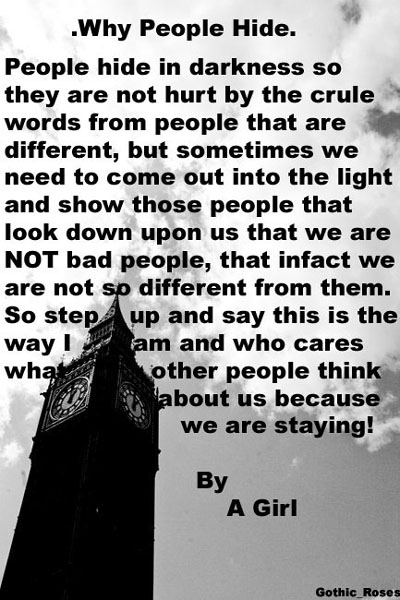 Her memoir, The Bright Side of a Broken Heart is available here. Download her FREE guide to heal your heart and follow her on Instagram for daily doses of inspiration.
Her memoir, The Bright Side of a Broken Heart is available here. Download her FREE guide to heal your heart and follow her on Instagram for daily doses of inspiration.
See a typo or inaccuracy? Please contact us so we can fix it!
How to Hide Myself From Users on Facebook | Small Business
By Jason Spidle
Facebook provides a full range of privacy tools that enable you to control who can see your profile, pictures and status updates. With these privacy tools, you can completely hide your profile from other users on Facebook. Depending on your needs, you can either hide your profile from specific users or you can configure your profile to be invisible to everyone except friends or friends of friends. On the other hand, if you only want to hide your profile when you are signed out, you can do so by deactivating your account.
Hide From Specific Users
-
Navigate to Facebook and sign in to your account.
-
Click the arrow to the right of the "Home" menu and select "Privacy Settings" from the drop-down menu.

-
Scroll to the bottom of the page and click "Manage Blocking" in the Blocked People and Apps section.
-
Type the name or email of the user you want to hide your profile from in the "Block Users" section and then click "Block." If you are blocking a user by name, you may be presented with a list of users with that name from which you will need to press the "Block" button beside the specific user you want to block.
Hide From Public Searches
-
Navigate to Facebook and sign in to your account.
-
Click the arrow next to the "Home" menu and select "Privacy Settings" from the drop-down menu.
-
Click "Edit Settings" in the "How You Connect" section.
-
Click the "Who can look up your profile by name or contact info?" drop-down menu and select "Friends of Friends" or "Friends" to limit the people who can view your Facebook profile. This hides your profile from being visible in public searches on Facebook or from search engines like Google.

-
Click "Done" to save your settings.
Hide When Signed Out
-
Navigate to Facebook and sign in to your account.
-
Click the arrow to the right of the "Home" menu and select "Account Settings" from the drop-down menu.
-
Select the "Security" tab and then click "Deactivate Your Account."
-
Select "This is temporary, I'll be back" and then click "Confirm."
-
Enter your Facebook password and then click "Deactivate Now." You will be signed out of Facebook and your profile is hidden from everyone on Facebook. Reactivate your account by signing in as usual from the Facebook home page.
References
- Facebook Help Center: Blocking People
- Facebook Help Center: Privacy: Search Privacy Settings and the Suggestions Feature
- Facebook Help Center: How Do I Deactivate My Account?
- Facebook Help Center: I Deactivated My Account. How Do I Reactivate It?
Writer Bio
Jason Spidle is a technology enthusiast and writer.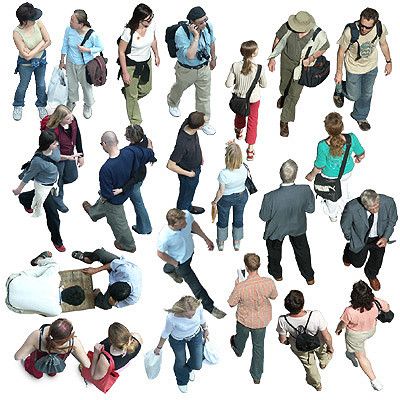 His writing on computers, smartphones, Web design, Internet applications, sports and music has been published at a variety of websites including Salon, JunkMedia, Killed in Cars and The Columbia Free Times. Spidle maintains a number of blogs featuring poetry, short stories and other fiction.
His writing on computers, smartphones, Web design, Internet applications, sports and music has been published at a variety of websites including Salon, JunkMedia, Killed in Cars and The Columbia Free Times. Spidle maintains a number of blogs featuring poetry, short stories and other fiction.
"All people strain, what to do?" Psychologist advises
Our reader Victoria is worried about her condition: all the people around have recently begun to strain and cause irritation.
“I have always been a rather sociable person, so there are quite a lot of people in my environment,” writes Victoria. - Plus, at work, constant communication. Previously, everyone liked it, but now people are just annoying. Almost everyone causes irritation, even when they are just nearby on the bus or in the store. I want to hide, hide from everyone and turn off the phone. I want to be in nature, with a good book, watch a movie, I want to be alone with myself more often, in my thoughts. I don’t know if my condition is normal and what should I do.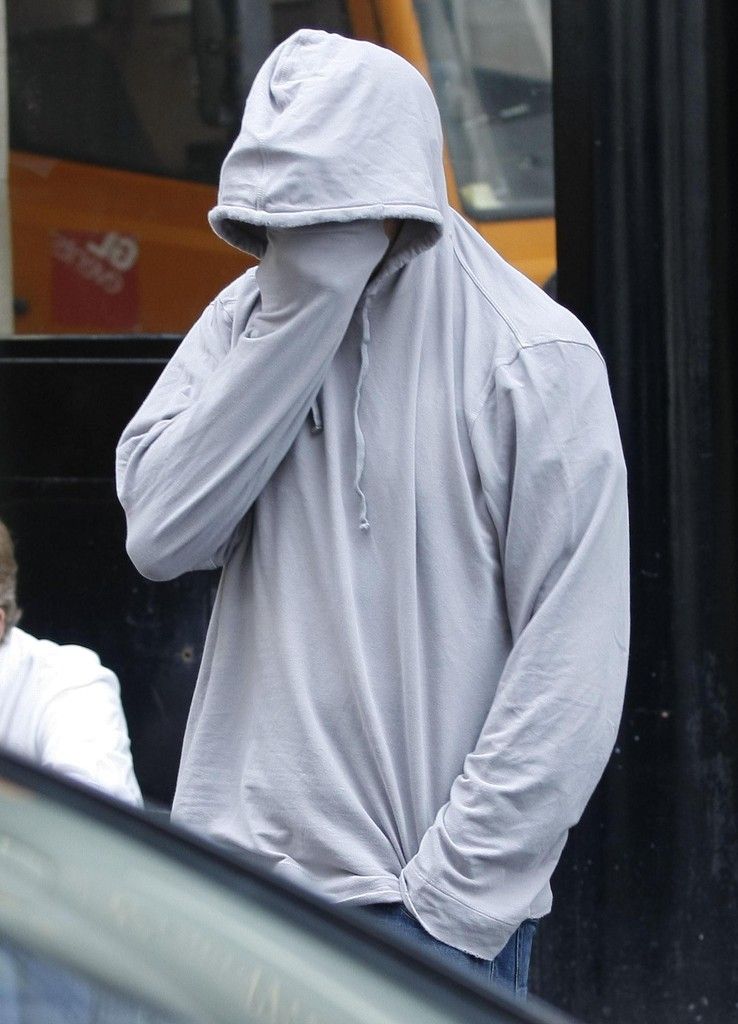 ”
”
Natalia Egorova , educational psychologist at the Center for Correctional and Developmental Education and Rehabilitation in Bobruisk:
Psychologist Natalia Egorova.- Dear Victoria, recently you began to notice that life does not bring you joy, and work does not bring satisfaction. Your nervous system is exhausted, this problem must be solved and not wait for it to go away on its own. Be sure to listen to your desires: hide, shut yourself off from everyone and turn off the phone, be in nature, with a good book, watch a movie, be alone with yourself more often, in your thoughts. Try to realize your desires in the near future - this will be the first step towards relieving psycho-emotional stress and reducing the level of stress in the body.
We can be happy and angry, amazed and indignant, sad and adore, hate and admire. At the same time, negative emotions accumulate in the body, provoking emotional experiences that can lead to chronic stress.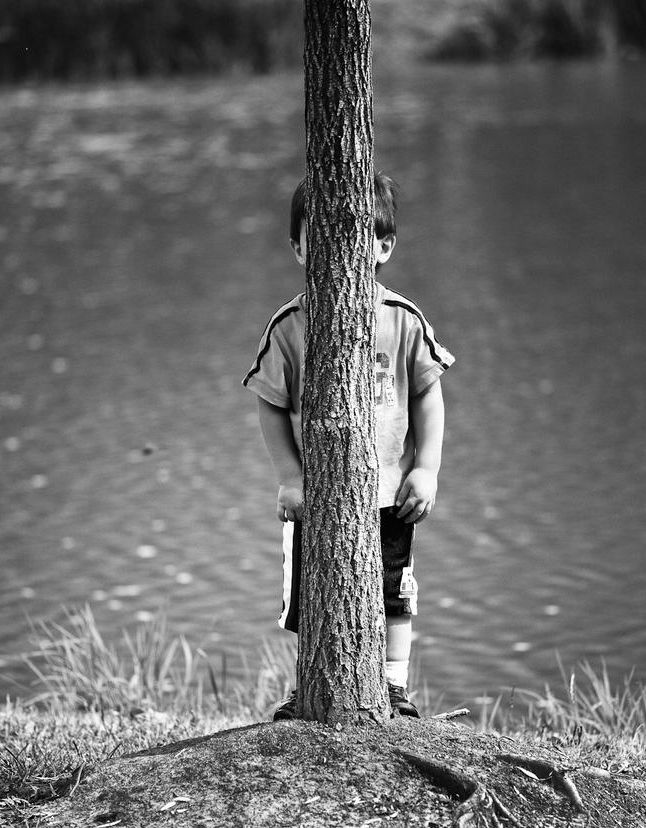 Gradually, emotions literally leave us, as a result, only a feeling of emptiness remains ... This path leads to emotional and professional burnout. Many people do not even know what it is, and the symptoms of burnout syndrome are attributed to ordinary fatigue.
Gradually, emotions literally leave us, as a result, only a feeling of emptiness remains ... This path leads to emotional and professional burnout. Many people do not even know what it is, and the symptoms of burnout syndrome are attributed to ordinary fatigue.
In today's society, burnout syndrome is by no means a rare occurrence. Day after day, we do not receive emotions, but give them more, life becomes gray and boring, and you begin to perceive others “according to the template”. Often in relation to others, you can feel aggression or complete indifference.
Why does burnout occur?
Emotional burnout occurs as a result of the internal accumulation of negative emotions without a corresponding "discharge" or "liberation" from them. It leads to the depletion of the emotional-energetic and personal resources of a person.
To burn out means to lose touch with the world, to alienate oneself, other people, life in general. In this case, all positive emotions are dulled, a person is faced with loads that in total exceed his ability to process. Burnout syndrome is characterized by emotional and mental exhaustion, decreased job satisfaction, and physical fatigue.
Burnout syndrome is characterized by emotional and mental exhaustion, decreased job satisfaction, and physical fatigue.
Burnout syndrome can also occur as a result of constant and long-term interaction with a large number of people, when there is a need to show various emotions, sometimes not coinciding with the internal emotional state. There are situations when a person sacrifices his needs for service ones, almost completely forgets about himself and his family. It is not right.
That is, emotional burnout is the result of accumulated stress, which for a long time does not receive relaxation in the form of a pause in work, communication with loved ones or spiritual nourishment in the form of a hobby.
What to do in order not to face emotional burnout?
1. Choose a time for rest, at least one day a week, perhaps, which you will spend useless from the point of view of others.
2. Make sure that this time should be inviolable. Turn off your phone and anything else that might get you busy with other people or work.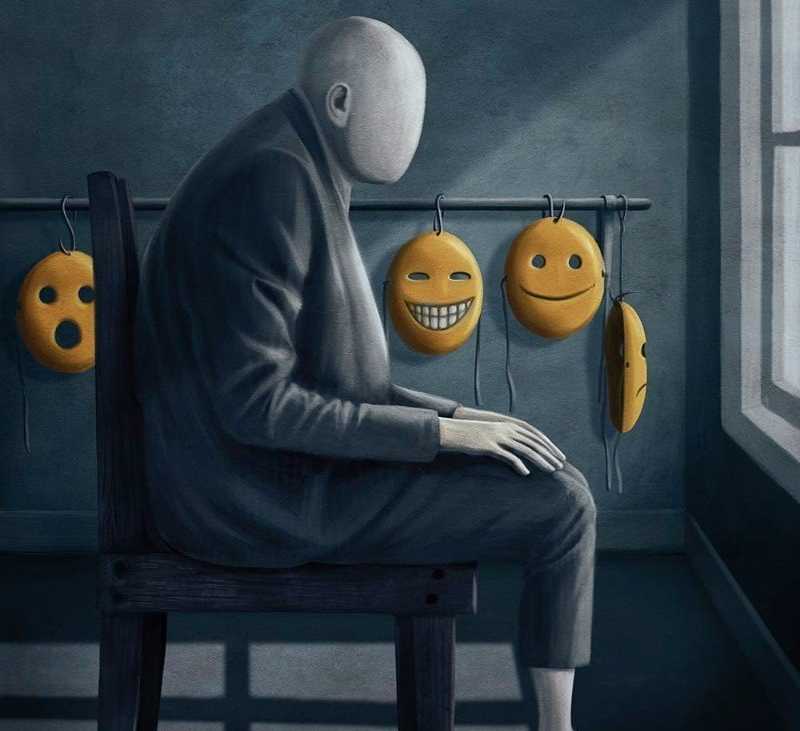
3. Record this time and space on a calendar. Why do we write down the time of important business meetings in the diary, but not the rest time?
4. Find a way to switch to another activity. For example, start cooking (sewing, knitting, embroidering), walking, mastering a new “useless” skill (learning to sing, draw, play musical instruments, play some kind of tricky game).
5. And, most importantly, remember all the people with whom you communicate. Analyze which of them exhausts you the most, with whom you least want to meet? Then think about whether you can somehow reconsider your relationship with these people in a way that is more comfortable for you. If not, can you eliminate interaction with them from your life? If you convince yourself that for some reason you are obliged to communicate with them no matter what, then ask yourself - what forces you to prioritize in this way? When you honestly answer these questions to yourself, many things in your life will change for the better.
Psychologists believe that in order not to become a victim of burnout syndrome, one must first of all treat oneself, other people and one's work correctly.
The main thing to remember is that burnout syndrome is not a disease or a sentence, it is just the ability of your psyche to respond to emotional overload.
Causes of emotional burnout - a column by a psychologist from Samara November 1, 2021 | 63.ru
There are explanations for the desire to be alone
Photo: Roman Danilkin
Share
You don't live your own life. This is one of the reasons for emotional burnout, which periodically covers, perhaps, each of us. A psychologist from Samara, Alena Forkunova, explained why sometimes it becomes so sad, bad and morally difficult, although outwardly everything seems to be normal. If you recognize yourself in any version, write in the comments.
Alena Forkunova - psychologist with more than 5 years of experience.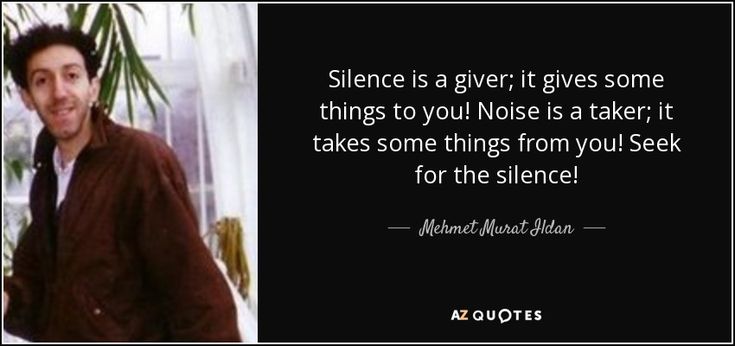 He mainly works with anxiety states, with the topics of self-esteem, relationships with loved ones, replenishment of resources. He has also been blogging for about 5 years
He mainly works with anxiety states, with the topics of self-esteem, relationships with loved ones, replenishment of resources. He has also been blogging for about 5 years
Photo: Alena Forkunova / Instagram.com
Share
— “I have an emotional burnout.”
“I am constantly in an apathetic state, I have no plans for my future life, I don’t accept myself…”
“I don’t want anything in life, so many traumatic situations have happened.”
I regularly receive such requests from clients. I know the state when you want to hide under the covers, hide from the whole world and not get out of there. At such moments, the desire to live, be active, communicate, work disappears, emotional exhaustion sets in.
Why does such a state take over for no reason? Nothing like this is happening, life is quite tolerable (by social standards), but for some reason I feel bad . .? Is there something wrong with me?
.? Is there something wrong with me?
I want to share my vision of what is happening.
First. You are not living your life, you are going against yourself. You continue to work at a job you hate and do nothing about it, or you don’t clear up conflicts in a relationship. Perhaps now you no longer understand what exactly is wrong, but somewhere in the past you felt this moment. Then they did not attach importance to their feelings and could not respond correctly.
Second. You have a stream of negative thoughts and attitudes (you may not even be aware of them). These thoughts create your emotional state, your attitude towards yourself, those around you, towards the world as a whole. You wake up in the morning and feel depressed. Why? Because subconsciously you consider this world hostile, people are evil and bad, you are ugly / scary and worthless (everyone has their own set). You may not hear these words in your internal dialogue because they sit deeper - in your subconscious! But on the surface, apathy, sadness and the meaninglessness of life.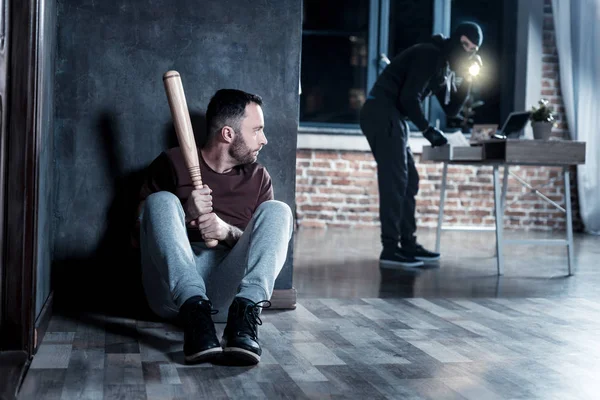
Third. You are not doing what is important to you. Being engaged in tough achievement of your goals, you start to miss life itself, you turn into a driven robot. At the same time, just going with the flow, you easily fall into a rotten swamp. Without a vision of a plan for your life (for example, for the next year), you miss out on many important things, including your values. For example, you stop relaxing, you forget about your health or meeting friends, you stop developing.
Fourth. You have unclosed gestalts and stuck feelings (resentment, anger, envy, sadness, and so on). Suppose a traumatic story happened to you, but you chose to step back, did not live it, decided that everything would pass anyway. And it seems to have passed ... But no. It did not pass. This story pulls you when you talk about it, tears roll up or aggression. Such open gestalts steal your energy and mood.
on the topic
-
June 17, 2021, 13:40
Closure and desire for solitude: Psychologist from Samara named signs of suicidal behavior
Alena Forkunova
Psychologist
Opinion of
Others Others others articles by the author
Eternal claims and mutual insults: how to stop being dependent on your mother?
September 17, 2021, 00:00
“I’m not as bright and beautiful as she is”: how to stop comparing yourself to others
August 02, 2021, 00:00
“First there was romance, and then.